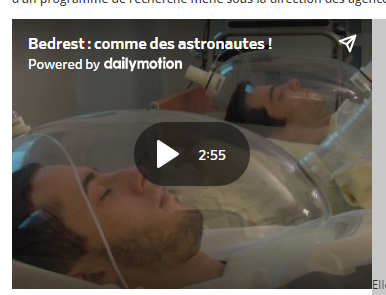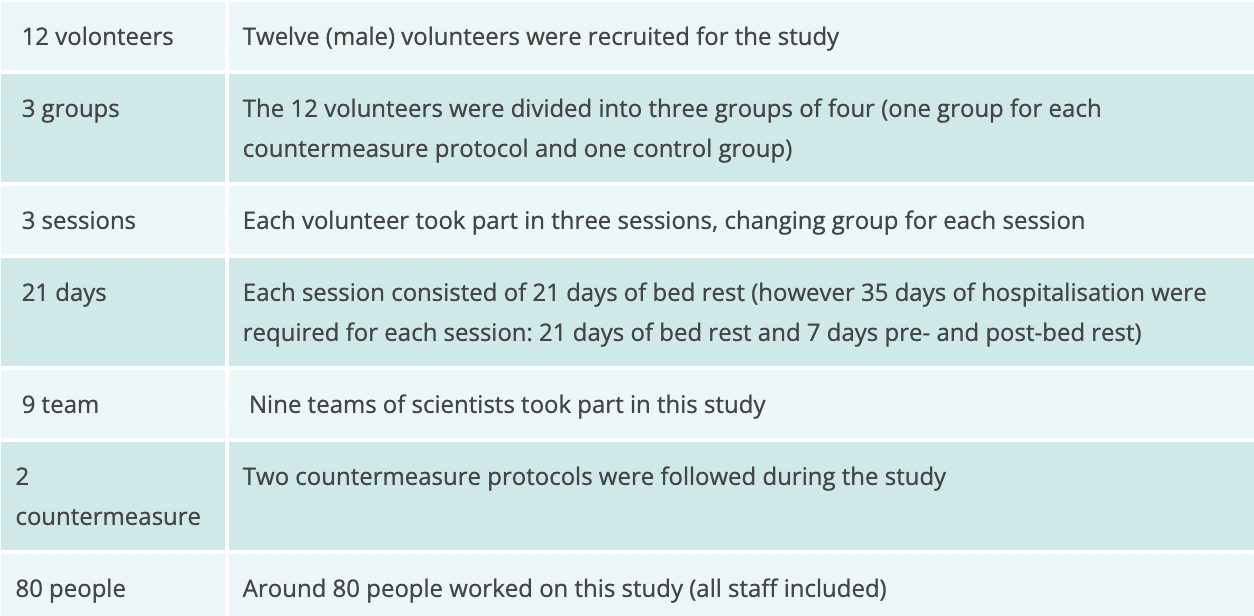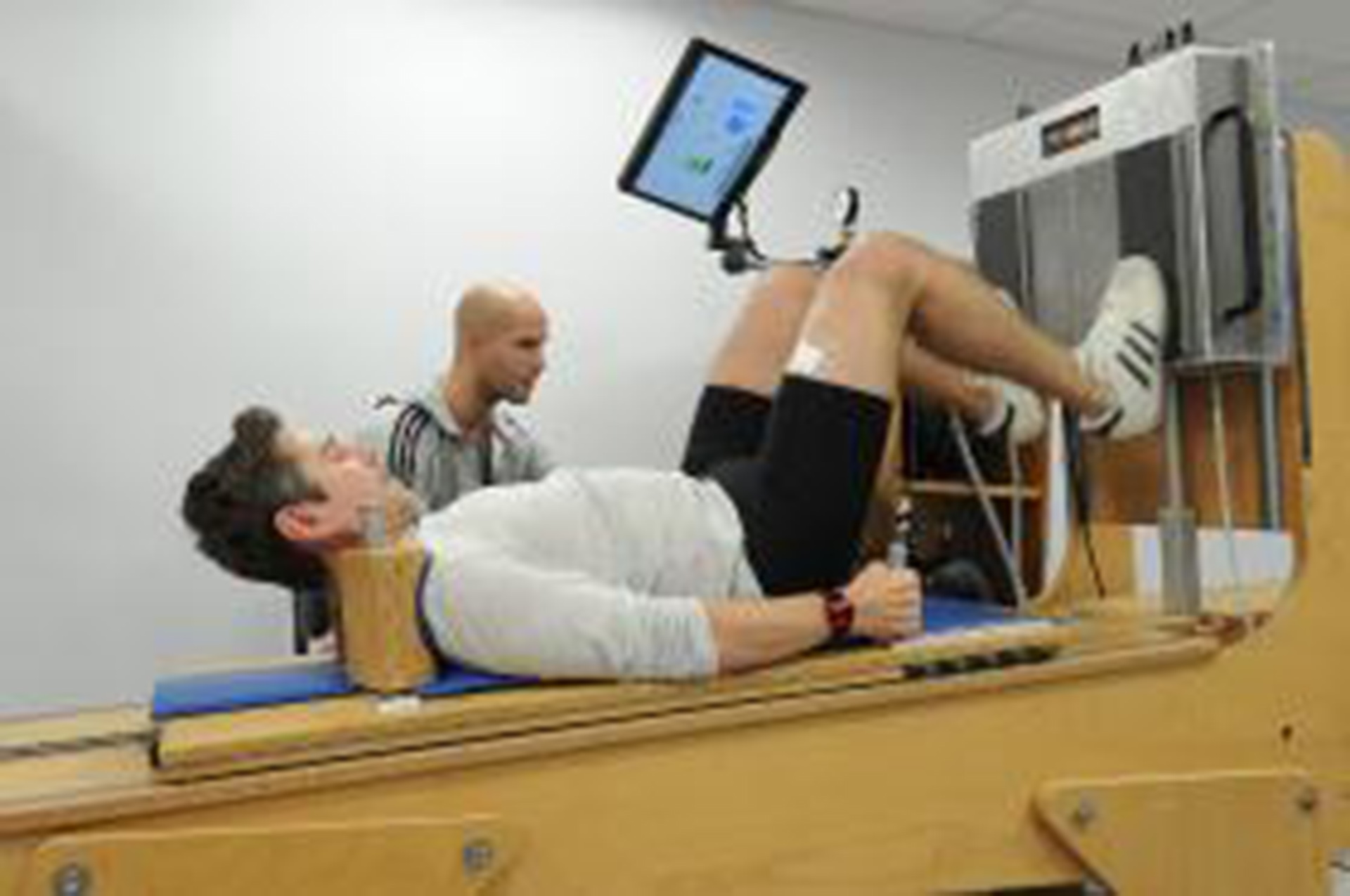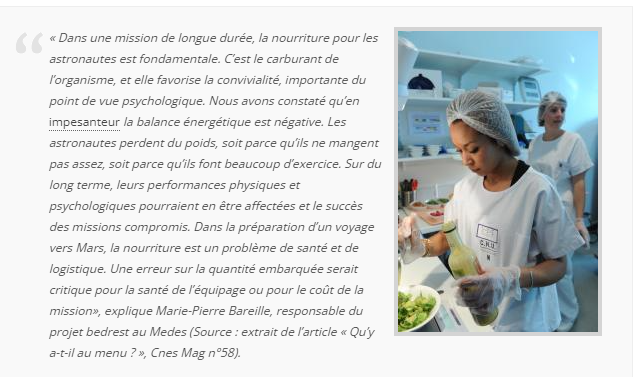MNX bed rest study (2012-2013)
Date :
2021
State of progress :
Ended
Objective :
Study of the effects of space flight on the human body
Partner :
ESA
The “Medium duration Nutrition and vibration eXercise” (MNX) study was part of a research programme being conducted under the leadership of the French and European space agencies.
Its main aim was to study the effectiveness of two methods for mitigating the effects of microgravity to which astronauts are subjected (countermeasures):
- exercising the lower limbs (“squats”) under resistance, on a vibrating platform. This exercise was conducted twice a week,
- the same physical exercise programme combined with protein and potassium bicarbonate supplementation in the daily diet.
Twelve volunteers were recruited for this study. They underwent three periods of hospitalisation each lasting 35 days (including 21 days of bed rest each time). Each period was separated from the next by a period of 4 months, making the total study duration 1 year.
Nine teams of scientists took part in the study.


Key figures for the study
Implementation of the study
The 12 study volunteers were divided into three groups as follows:
- Exercise and vibration group: during the bed-rest period, the volunteers from this group underwent physical training twice a week (“squat” type exercises, i.e. pushing with their legs) lying down on a vibrating platform on a machine specially designed for this purpose.
- Exercise and vibration plus nutrition group: during the bed-rest period, the volunteers in this group underwent the same physical training as the previous group, but received a slightly different daily diet: the amount of protein was increased with additional intake in the form of whey protein and potassium bicarbonate. This supplementation was administered with main meals and snacks (6 times/day).
- Control group: this group served as a control for the experiment. The subjects in this group did not do exercise sessions on the vibrating platform and followed a standard controlled diet. By comparison, this group served to assess the effect of the two types of countermeasures on each volunteer.
This was a cross-over study, meaning that each of the 12 volunteers acted as their own control, and changed group each period. Lots were drawn to determine the order in which they changed between the three groups.
Each hospitalisation period of 35 days was broken down into three phases:
- An ambulatory control period of 7 days before bed rest,
- Anti-orthostatic bed rest (inclined at -6°) for a period of 21 days,
- An ambulatory recovery period of 7 days after bed rest.
Following each hospitalisation period, the volunteers returned for follow-up visits, 14 days and 28 days after the end of each bed-rest campaig

Les protocoles scientifiques
Nine research teams studied the mechanisms of the body’s adaptation to 21 days of simulated microgravity and the effect of the two countermeasure protocols on the following physiological systems :
- Metabolic systems
- The cardiovascular system and its control mechanisms
- The osteoarticular system and muscles
- The bloodstream, primarily the mechanisms of blood coagulation
The main lead scientists who participated in this study are as follows:

Nutrition during the study
Food and everything that relates to it (health, social interaction, etc.) is essential for astronauts on long-duration missions.
During a long-duration mission, eating right is vital for theastronauts. It’s fuel for their bodies, but meal times together are also good for morale. In microgravity, the energy balance is negative. Astronauts lose weight, either because they don’t eat enough or because they do a lot of exercise. In the long term, their performance could be affected and mission success compromised. When preparing a journey to Mars, food is both a health and logistics issue. Taking the wrong amount would be critical for the crew’s health and the cost of the mission”, explains Marie-Pierre Bareille, head of the bedrest programme at MEDES (Source: excerpt from the article “What’s on the menu?”, Cnes Mag n°58).
The European Space Agency (ESA) has therefore defined a long-term strategy to standardise the conditions of bed-rest studies especially with regard to nutrition (Working Group on Space Nutrition of the European Space Agency: Ms M. Heer, Mr S. Blanc and Dr. G. Biolo).
During these experiments, nutritional intakes are now fully monitored and controlled.


Nos actualités
Nos projets
Une question ?
Devenir volontaire ?
Nos études cliniques
Urgent ! Recrutement volontaires
